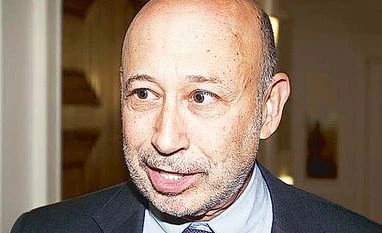Wall Street is an industry built on courting clients around the globe and hiring some of the best and brightest, wherever they may be.
But the finance world delivered a largely muted response to President Trump’s temporary ban on immigration from seven predominantly Muslim countries, even as other industries took far stronger stances on the action, casting it in moral terms.
Goldman Sachs’s chief executive, Lloyd C Blankfein, issued perhaps the only condemnation by a Wall Street firm of Trump’s order, saying it was “not a policy we support.”
By contrast, corporate chieftains from a range of other industries took bold stands: The chief executive of Netflix, Reed Hastings, described the action as “so un-American it pains us all” while the founder of Amazon, Jeff Bezos, pledged to support Washington State’s lawsuit against the Trump administration over the executive order.
Blankfein’s carefully worded criticism still stood as one of the sharpest responses from the finance industry, where business is fundamentally about moving money across the globe. Wall Street has deep roots to immigrants. Marcus Goldman, as a case in point, was a German immigrant, as were the Lehman brothers. And Wall Street, perhaps more than any other industry except the technology business, has prided itself on hiring top job candidates from anywhere in the world. That said, some banking executives said it was unclear how much the still-evolving contours of the travel ban would affect their staffs, with some saying relatively few employees appeared to have been affected thus far.
Still, the finance sector has had to confront growing nationalist sentiment in the United States and Britain, where the vote to leave the European Union, widely known as Brexit, has threatened to drive out much of that country’s financial industry, which could limit global trade and the flow of both money and qualified employees.
“I think it would probably hurt them because they do tend to rely on the best international talent, regardless of where they’re from,” said Charles Geisst, a professor at Manhattan College who has studied Wall Street.
But the finance industry has largely been cautious in moving into political controversy outside its focus on regulation.
Blankfein has long been somewhat of an outlier in his willingness to be an outspoken backer of Hillary Clinton, as well as same-sex marriage and other social issues.
So perhaps it was unsurprising that Blankfein used a voice mail message sent to employees on Sunday — a time-honored Wall Street way of delivering firmwide messages — to criticize the travel ban and note that parts of the executive order had been at least temporarily suspended.
In his message, Blankfein cited Goldman’s business principles, which included the line “Being diverse is not optional; it is what we must be.”
Citigroup’s chief executive, Mike Corbat, told employees in an internal memorandum on Monday that the firm was “concerned about the message the executive order sends,” and he encouraged finding “the right balance between protecting the country and its longstanding role as an open and welcoming society.”
And top officials at the asset-management giant BlackRock, which oversees $5 trillion in investments and counts big Middle Eastern countries as clients, said that while they recognized the need to keep the United States safe, any approach needed to respect the law.
“We, of course, all want to promote security and combat terrorism, but we believe it needs to be done with respect for due process, individual rights and the principle of inclusion,” the executives, including Laurence D. Fink, a founder and the chief executive, wrote.
Still, other firms took a more cautious approach, refraining from outright criticism of Trump’s actions. Most companies that issued statements said they intended to focus on helping any affected employees.
In an internal memo, JPMorgan Chase’s top executives said that they were both “grateful” for efforts to keep the United States safe and supportive of diversity. Wells Fargo also posted a statement on its employee website saying that it was still assessing what the executive order meant for its business and employees but that it was “committed to fostering a culture of diversity.”
Bank of America said in a message from its chief executive, Brian Moynihan, that it was working to ensure it had the most accurate information to best help affected employees.
The chief executive of Morgan Stanley, James P. Gorman, wrote to his employees, “Continuing to draw on talent from across the globe is a key element of Morgan Stanley’s culture and ultimately to our success in serving our clients.”
Other firms, such as Blackstone and TPG, had declined to comment.
Unlock 30+ premium stories daily hand-picked by our editors, across devices on browser and app.
Pick your 5 favourite companies, get a daily email with all news updates on them.
Full access to our intuitive epaper - clip, save, share articles from any device; newspaper archives from 2006.
Preferential invites to Business Standard events.
Curated newsletters on markets, personal finance, policy & politics, start-ups, technology, and more.
)